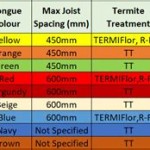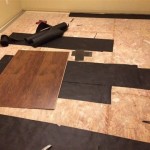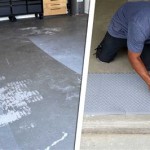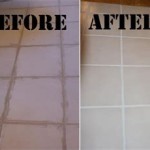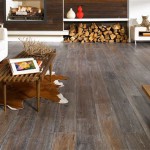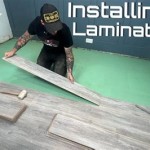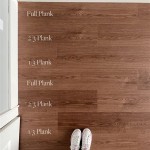What is the Most Scratch Resistant Flooring for Buyers in Singapore?
Selecting the appropriate flooring for a home in Singapore requires careful consideration of several factors, including aesthetics, budget, and durability. One of the primary concerns for homeowners, especially those with children or pets, is scratch resistance. Singaporean households experience heavy foot traffic and the potential for scratches from furniture movement, dropped objects, and the active lives of residents. Understanding the various flooring options and their relative scratch resistance is crucial for making an informed decision that aligns with long-term needs.
This article will provide a comprehensive overview of the most scratch-resistant flooring materials available in the Singaporean market, assessing their strengths and weaknesses to help buyers make the optimal choice for their homes. It will consider factors beyond just scratch resistance, such as cost, maintenance, and aesthetic versatility, to offer a balanced perspective.
Examining Factors Influencing Scratch Resistance
The scratch resistance of flooring is determined by a variety of material properties. Hardness is a primary factor, representing the resistance of a material to indentation. Materials with higher hardness ratings, measured using scales such as the Mohs scale, are generally more resistant to scratches. Density also plays a crucial role. Denser materials are more compact and less prone to surface damage from abrasion.
The presence of protective layers and coatings significantly contributes to scratch resistance. Many flooring options incorporate wear layers made of durable materials, such as aluminum oxide, that protect the underlying material from scratches and wear. The thickness and quality of these coatings directly influence the flooring's ability to withstand daily use. Some coatings are specifically formulated with scratch-resistant polymers to enhance their performance.
The type of finish applied to the flooring surface is another influencing factor. Matte finishes tend to conceal scratches better than glossy finishes. Glossy finishes, while aesthetically appealing, highlight even minor imperfections. Texture also plays a role; textured surfaces can camouflage minor scratches more effectively than smooth surfaces. Understanding these factors is important for evaluating different flooring options and their suitability for specific needs.
Top Flooring Options for Scratch Resistance in Singapore
Several flooring types stand out in terms of scratch resistance, each offering a unique combination of durability, aesthetics, and cost. Identifying the best option for a Singaporean home requires careful consideration of these factors.
1. Ceramic and Porcelain Tiles:
These are renowned for their exceptional durability and scratch resistance. Porcelain tiles are particularly robust due to their high density and low water absorption rate, making them ideal for high-traffic areas and households with pets. The Mohs hardness scale typically rates porcelain tiles between 6 and 8, offering excellent protection against scratches. Ceramic tiles, while slightly less dense than porcelain, still offer good scratch resistance and are a more cost-effective option. Both ceramic and porcelain tiles are available in a wide range of colors, patterns, and sizes, providing design flexibility for various interior styles.2. Luxury Vinyl Tile (LVT) and Luxury Vinyl Plank (LVP):
These flooring options have gained popularity due to their versatility and durability. High-quality LVT and LVP feature a thick wear layer, often reinforced with polyurethane or aluminum oxide, which provides excellent scratch resistance. The thickness of the wear layer is a critical factor; thicker layers offer greater protection. While not as inherently scratch-resistant as ceramic or porcelain, LVT and LVP are more forgiving underfoot and less prone to chipping or cracking. They are also water-resistant, making them suitable for kitchens and bathrooms. The photographic layer allows for realistic replication of wood, stone, and tile, offering a wide range of aesthetic options.3. Engineered Hardwood Flooring:
This option consists of a thin layer of real hardwood veneer bonded to a core of plywood or high-density fiberboard (HDF). While the underlying core provides stability, the scratch resistance depends primarily on the hardness of the hardwood veneer and the quality of the finish. Some hardwood species, such as Brazilian Walnut (Ipe) and Hickory, are significantly harder and more scratch-resistant than softer options like Pine. Opting for engineered hardwood with a durable finish, such as multiple coats of polyurethane with aluminum oxide, can enhance scratch resistance. However, it's important to note that engineered hardwood is generally more susceptible to scratches than ceramic or porcelain tile.4. Laminate Flooring:
This option is a cost-effective alternative to hardwood and is manufactured with a photographic applique layer under a transparent protective layer. The scratch resistance of laminate flooring depends on the abrasion class (AC) rating. Higher AC ratings indicate greater scratch resistance. Laminate flooring is relatively easy to install and maintain, making it a popular choice for budget-conscious homeowners. While it may not match the scratch resistance of ceramic or porcelain tile, high-quality laminate with a high AC rating can withstand moderate levels of wear and tear.Practical Considerations for Singaporean Homes
Beyond the inherent scratch resistance of the flooring material, several practical considerations are relevant for Singaporean homeowners. These include maintenance, climate suitability, and cost.
Maintenance is a crucial factor. Flooring that requires extensive maintenance is less practical for busy Singaporean households. Ceramic and porcelain tiles are relatively easy to clean and maintain, requiring only regular sweeping and mopping. LVT and LVP are also low-maintenance options. Engineered hardwood and laminate flooring require more careful cleaning to prevent water damage and scratches. The use of appropriate cleaning products and regular sweeping or vacuuming is essential for preserving the appearance and longevity of these materials.
The humid climate of Singapore can impact the performance of certain flooring types. Solid hardwood flooring, for example, is prone to warping and expansion in humid environments. Engineered hardwood is a more stable alternative due to its multi-layered construction. LVT, LVP, ceramic, and porcelain are unaffected by humidity, making them suitable choices for Singaporean homes. It's essential to consider the moisture resistance of the flooring material, particularly in areas such as bathrooms and kitchens.
Cost is a significant consideration for many Singaporean buyers. Ceramic and porcelain tiles can be moderately expensive upfront, but their durability and longevity make them a cost-effective long-term investment. LVT and LVP offer a good balance of cost and performance. Engineered hardwood is generally more expensive than laminate but less expensive than solid hardwood. Laminate flooring is the most budget-friendly option, but its durability may be lower compared to other materials. It's important to factor in installation costs and the potential for future repairs or replacements when evaluating the overall cost of each flooring option.
Selecting the most appropriate flooring for a home in Singapore requires a thorough assessment of its scratch resistance, maintenance requirements, climate suitability, and cost. While ceramic and porcelain tiles are unmatched in their scratch resistance, LVT and LVP offer a versatile and durable alternative. Engineered hardwood can provide the aesthetic appeal of real wood but requires careful maintenance. Laminate flooring is a cost-effective option for budget-conscious buyers. By understanding the strengths and weaknesses of each option, Singaporean homeowners can make an informed decision that aligns with their specific needs and preferences.
Ultimately, the 'most' scratch-resistant flooring is highly subjective and contingent on lifestyle. Those with pets and children might prioritize tile, while those seeking a warmer aesthetic with less traffic may lean towards engineered hardwood or LVP with a robust wear layer. Careful consideration and research are key.

6 Most Popular Flooring Types In Singapore Vinyl Marble Laminate Which Is The Best

4 Mistakes To Avoid When Choosing Laminate Flooring For Hdb Singapore

Vinyl Flooring The Mill International

Bamboo Flooring In Singapore

Does Laminate Flooring Increase Home Value Singapore

A Guide To The Best Flooring For Every Room At Home Floor Gallery

Recommended Laminate Flooring Services Singapore 2025 Buyin Best S Sg

Things To Know About Vinyl Flooring Floor Supplier

What You Need To Know Before Vinyl Flooring Singapore

Scratch Resistant Tiles What You Need To Know Before Skytouch Ceramic
See Also

